Thinking about turning your web development skills into a real business? You’re not alone. Thousands of developers dream of starting their own agency every year, but 87% of new agencies fail in the first 12 months. The main reason isn’t poor coding skills or bad design. It’s simple: they can’t find enough paying clients to keep the business alive.
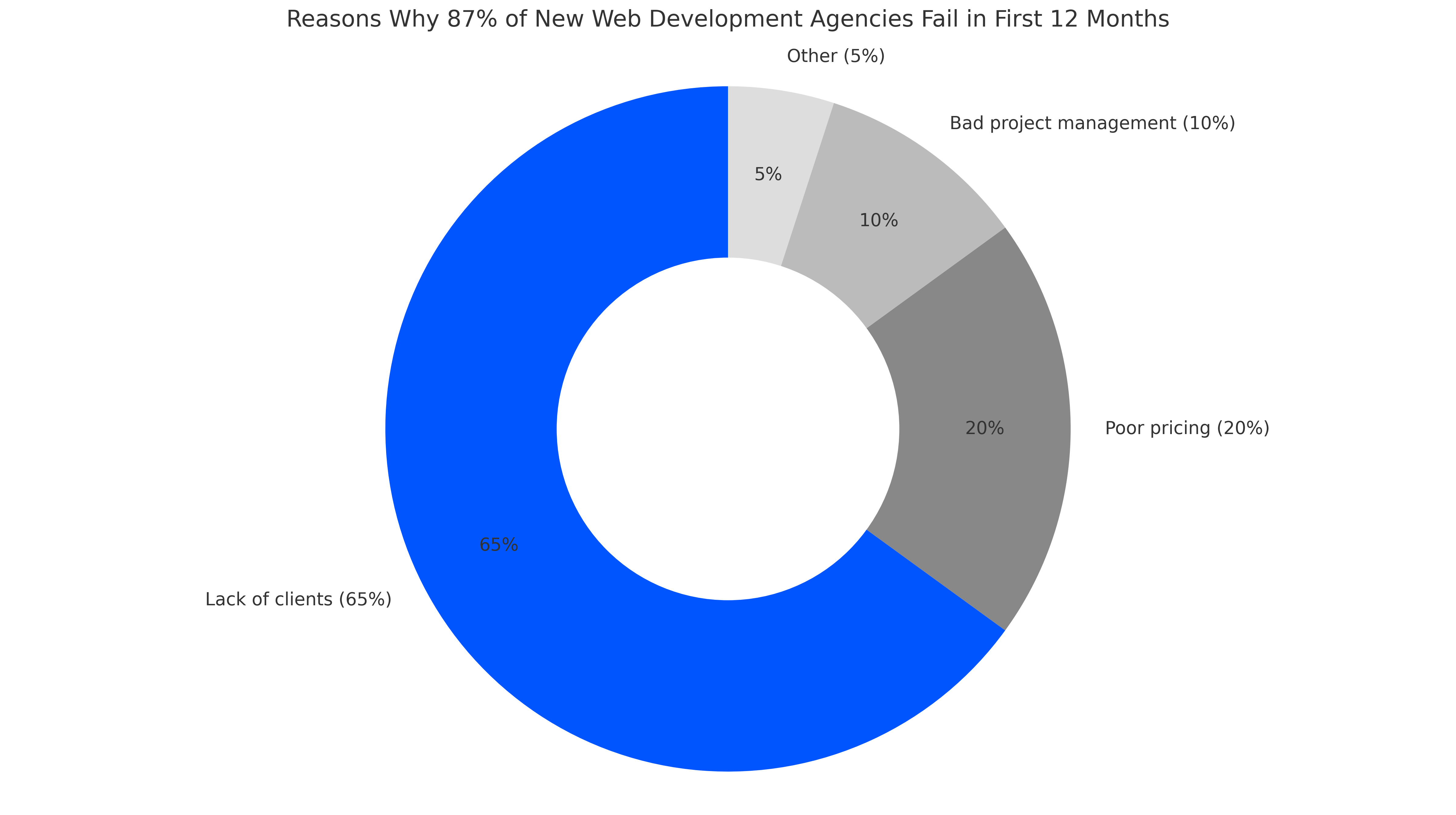
Starting a web development agency in 2025 feels exciting but overwhelming. You see other agencies landing big contracts while you struggle to get your first project. The truth is, the biggest challenge is not building websites - it’s building a steady stream of clients who trust you and are ready to pay.
Most beginners make the same mistake: They create a name, design a logo, make a shiny portfolio… and then wait. Weeks pass, but no one reaches out. The reason? Clients don’t even know you exist.
Successful agencies don’t rely on luck. They go where clients are already searching for developers, post real projects with real budgets, and are ready to start immediately. Platforms like Upwork, LinkedIn, and other freelance marketplaces see thousands of new web development jobs daily, yet many new agencies ignore them. This is your practical roadmap for you in 2025:
- The step-by-step process to set up your agency professionally from day one.
- How to avoid common mistakes that kill most new agencies.
- Proven methods to find and close high-paying clients fast, without spending months waiting for referrals.
- Real numbers and strategies that successful agencies use to go from $0 to $5,000 - $10,000 per month in their first 90 days.
If you’ve got the skills but no clients yet, this article will show you exactly where to look, what to say, and how to turn your coding talent into a profitable business in 2025.
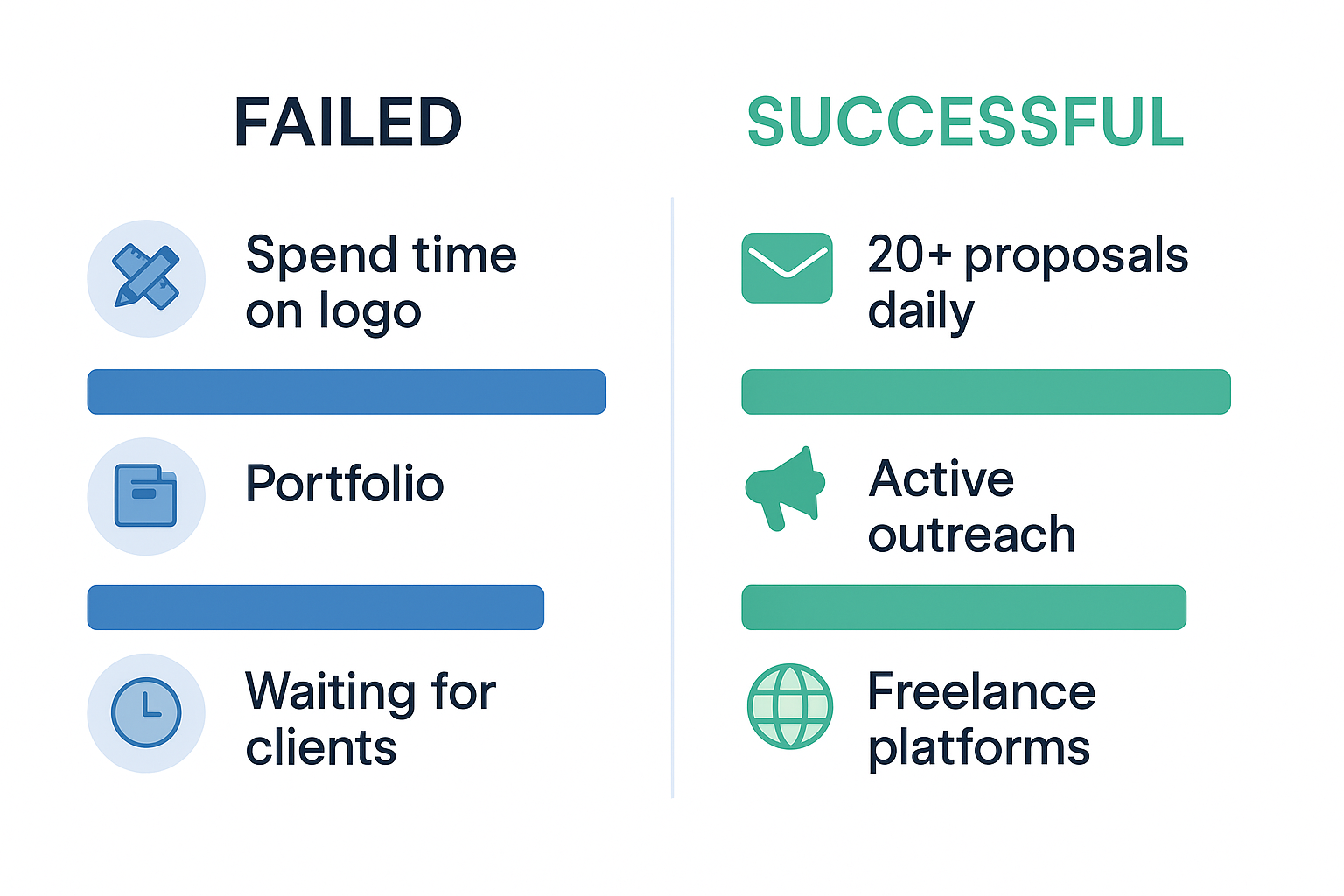
Start a Website Development Company from Scratch in 2025
Starting a web development agency in 2025 doesn’t need years of planning. What you really need is a clear 30 - 60 - 90 day roadmap, a strong focus on your services, and an early system for finding clients. Skip these steps, and you can easily waste months doing “busy work” with no paying projects. Follow them, and you can realistically land your first client in 30 - 45 days, even if you start alone.
Week 1: Build a Proper Foundation
Many beginners waste time on things that don’t matter early on (perfect logo, big office, fancy equipment). Focus on the essentials that make you look professional and protect your business:
- Register your business name and choose a legal structure (LLC is recommended in most countries for liability protection).
- Open a separate business bank account. This makes taxes easier and shows clients you’re serious.
- Set up basic project management tools (Trello, Asana, or ClickUp). Don’t overcomplicate it.
- Create a simple but professional brand identity: a clean logo, one color palette, and a short tagline.
Week 2: Define Your Services and Pricing
New agencies fail because they try to do “everything for everyone.” This leads to confusion and low pricing. In 2025, niche specialization wins. Pick one focus area where you can deliver great results:
- E-commerce websites for small shops
- WordPress sites for local businesses
- Custom web apps for startups
Now, create three clear service packages instead of custom quotes every time:
Fixed packages help clients understand what they’re buying and make sales conversations shorter. Agencies using this model often close 40-50% more deals than those offering vague, custom quotes.
Week 3: Prepare Your Lead Generation System
A great website won’t magically bring you clients. You need to go where clients already look for developers and start conversations:
- Build a basic portfolio website (3 - 5 strong examples, even if some are personal/demo projects).
- Create and optimize your LinkedIn business page.
- Join 5 - 10 online groups or communities where business owners ask for website help (Facebook, Reddit, indiehacker forums).
- Prepare outreach templates for emails and LinkedIn messages (short, problem-focused, no spam).
On average, new agencies that send at least 15 - 20 personalized messages per day to potential clients secure their first paid project within 30–45 days, often worth $1,000 - $3,000.
Week 4: Actively Acquire Clients
This week is about taking action, not waiting:
- Send 10+ tailored proposals daily on freelance job boards or online forums.
- Reach out to 20 new LinkedIn connections (business owners, startup founders).
- Post 1 helpful tip or case study per week in the communities you joined.
- Follow up with every potential client (most deals close only after 2 - 3 follow-ups).
How to Stand Out in a Saturated Market
Stop talking about features. Start talking about business results. Here's how successful agencies position themselves:
Instead of saying: "We build responsive websites with modern design"
Say this:
"We create websites that convert 40% more visitors into paying customers"
Instead of saying: "We use the latest technologies and frameworks"
Say this:
"We build websites that load 3x faster than your competitors, keeping visitors engaged"
Instead of saying: "We offer ongoing maintenance and support"
Say this:
"We monitor your website 24/7 and fix issues before they cost you sales"
Track these metrics for every client project:
- Website loading speed improvements
- Conversion rate increases
- Search ranking improvements
- Lead generation increases
- Revenue impact (when possible)
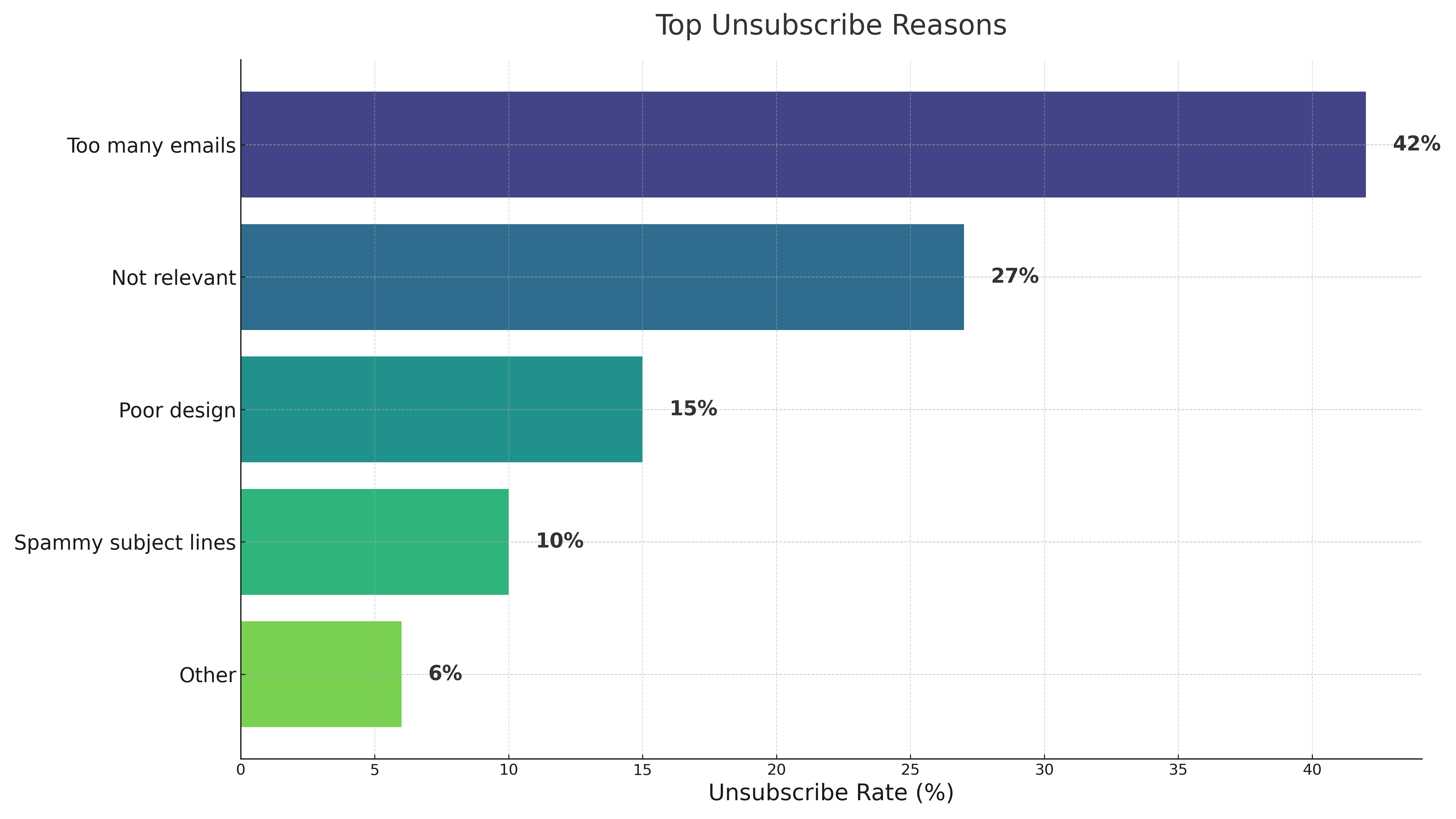
Where to Find Your First Clients Without Paid Ads
Getting your first clients is the hardest part of launching a web development agency. The good news? You don’t need ads or a big budget - you need visibility, credibility, and smart outreach. Here’s how agencies land their first projects in 2025 without spending a cent on ads.
Imagine LinkedIn as a networking event that never ends. The biggest mistake beginners make is firing off dozens of “Hi, do you need a website?” messages.
The agencies that win on LinkedIn play the long game:
- Connect intentionally: 15 - 20 requests daily to decision-makers in your niche.
- Warm up the connection: comment on their posts, react to updates, get on their radar.
- Share expertise publicly: post quick tips, client success snapshots, or short “before/after” stories.
- Follow up naturally: three days after connection, send a message offering value, not a hard pitch.
One of our readers booked 3 client calls in 12 days using this exact process, with zero ads.
Networking Events
Yes, 2025 is digital-first. But face-to-face still wins when you need clients quickly.
Instead of just handing out business cards, focus on:
- A 30-second intro about results you deliver, not services:
“We help local businesses double their leads in 30 days with optimized websites.”
- Immediate follow-up on LinkedIn or email within 24 hours.
- Offering quick, free insights during conversations (people remember those who help them on the spot).
Many first long-term clients for small agencies still come from these personal connections.
Referrals
Referrals aren’t random - you can make them predictable:
- Give happy clients a small incentive (discount, free upgrade, or bonus service) for every new client they bring.
- Reach out to marketing agencies, graphic designers, and business consultants to form mutual referral partnerships.
- Keep a “referral wall of fame” - even just a simple thank-you message makes people more likely to recommend you again.
A single strong partnership can keep your calendar full for months without any marketing spend.
Social Media Groups
Facebook groups, Reddit communities, and niche forums are filled with business owners asking for help with websites. This is free marketing if you approach it right.
- Join 5 - 10 active groups related to your niche or location.
- Spend 15 minutes daily answering questions and giving tips.
- Share short before/after case studies showing real client results.
- Avoid spam - focus on being helpful and visible.
People will start tagging you or messaging you directly for projects.
Cold Emails, Content Marketing, Partnerships
When you’re just starting out, you can’t sit and hope for referrals. You need to reach people directly - but you also need to make sure they’re interested before you ever ask for a sale. That’s where a mix of cold outreach, content creation, and smart partnerships comes in.
Cold emails can work incredibly well for web development agencies, but only if they’re personalized and valuable. Forget the copy-paste spam that gets ignored. Instead, research the company, spot a real improvement opportunity, and send a message that feels tailored to them.
Example of a short email that gets replies:
Subject: Quick idea for [Company Name]
Hi [Name],
I noticed your website loads slowly on mobile. Companies in [industry] often see 20 - 30% more leads after fixing this.
Would a quick 15-minute call make sense to see if we can do the same for you?
Send 5 - 10 emails like this daily, follow up politely once or twice, and within a few weeks, you’ll start booking real conversations.
But outreach alone won’t build long-term trust. That’s where content marketing comes in. Share your expertise publicly:
- Post short, useful tips on LinkedIn about improving website performance.
- Write before/after case studies showing how your work boosted a client’s leads or sales.
- Record a one-minute video explaining common mistakes small businesses make on their websites.
This way, prospects start seeing you as the go-to expert, even before they talk to you.
Finally, don’t underestimate strategic partnerships. Many clients needing websites already work with marketing agencies, graphic designers, or business consultants. If you can become their trusted web partner, they’ll recommend you again and again. A simple free audit for one of their clients can be the first step to a long-term referral stream.
Freelance Platform for Web Development Agencies
While you’re doing all of the above, there’s one shortcut that can get you paying projects fast: freelance platforms built for professional services. The biggest player here is Upwork.
Many new agencies ignore platforms like Upwork, thinking they’re only for low-paying gigs or solo freelancers. That’s a huge mistake. In reality:
- Thousands of serious businesses post web development projects daily.
- The average project value is over $1,500, with many repeat clients hiring again within months.
- The platform’s verification and feedback system makes it easy for quality agencies to stand out.
Unlike traditional lead generation, where it can take 3 - 6 months before you see results, Upwork lets you start bidding on real projects in days. You only pay when you win work, and you get access to a streamlined proposal system that removes much of the guesswork of cold pitching.
The agencies that succeed here don’t try to be the cheapest option. They position themselves as problem solvers:
- Instead of saying “We build WordPress sites,” say
“We build websites that convert visitors into paying customers.”
- Instead of just showing a portfolio, share short results stories about how your sites helped businesses grow.
This approach leads to higher-value projects, long-term relationships, and a growing reputation on the platform - all without massive upfront marketing costs.
.png)
💰 Check your potential earnings
Starting a web development agency is exciting, but it’s hard to guess how much you can make in the first months.
This calculator helps you plan ahead:
- Enter how many proposals you can send weekly.
- Enter your conversion rate (clients who hire you).
- Enter your average price per project.
The tool will show your monthly and yearly potential income.
Try doubling your proposals and see how much more you could make. That’s why many agencies use automation tools like GigRadar - to send more proposals and win more projects without extra manual work.
Automate Upwork Lead Generation for Web Development
While Upwork provides access to countless opportunities, manually searching through projects and writing custom proposals takes significant time. Successful agencies understand that time spent on repetitive tasks is time not spent on client work or business growth.
This challenge led to the development of specialized tools that help agencies maximize their Upwork success while minimizing time investment. Instead of spending hours each day browsing projects and crafting proposals, smart agencies automate these processes to focus on what they do best: delivering excellent results for clients.
Gigradar represents the next evolution in Upwork lead generation. This tool automatically monitors Upwork for projects matching your specific criteria, then generates personalized proposals based on your best-performing templates. Instead of manually checking Upwork multiple times daily, you receive notifications only when relevant opportunities appear.
The automation goes beyond simple project alerts. Gigradar analyzes project requirements, client history, and success patterns to identify the opportunities most likely to result in hired projects. This data-driven approach helps agencies focus their energy on winnable projects instead of wasting time on proposals unlikely to succeed.
Case: How 15 Web Development Agencies Improved LRR by 123%
15 web development agencies on Upwork went from struggling with low proposal visibility to landing more replies and projects worth over $300K. By using GigRadar’s real-time job scanning, niche keyword targeting, and faster outreach routines, they improved proposal view rates by 37% and lead reply rates by 123% on average. Some agencies even tripled their replies per 100 proposals sent.
👉 Read the full case study to see month-by-month metrics, real agency examples, and the strategies they used to dominate Upwork.
Free vs Paid Lead Generation Tools for Web Dev Agencies
Understanding the difference between free and paid lead generation approaches helps agencies make informed investment decisions. Free methods like manual networking and content marketing work but require significant time investments. Paid tools and platforms provide faster results but require upfront investment.
Free Lead Generation Methods
Free approaches are ideal if you’re just starting and have more time than money. These methods rely on manual outreach, relationship building, and organic visibility.
Pros: Zero upfront cost, builds long-term reputation, good for networking.
Cons: Time-consuming, inconsistent flow of leads, slow scaling (3–6 months before results become predictable).
Examples:
- Sending manual LinkedIn connection requests and personalized messages daily.
- Participating in niche Facebook or Slack groups for founders and startups.
- Writing blog posts or LinkedIn articles showcasing your web dev expertise.
- Asking past employers, friends, or business contacts for referrals.
Paid Lead Generation Methods
Paid approaches work best when you want to speed up client acquisition and automate repetitive tasks. You invest money to save time and get more predictable results.
Pros: Faster deal flow, scalable outreach, measurable ROI.
Cons: Requires budget, some tools have a learning curve, competition may be high.
Examples:
- Upwork Paid Proposals (Boosted Bids): Helps you stand out instantly among dozens of bidders.
- GigRadar (Upwork Automation): Sends tailored proposals 24/7, increasing chances of replies without manual effort.
- Apollo.io, LinkedIn Sales Navigator: Paid data sources for scraping, segmenting, and emailing leads outside Upwork.
- Google Ads for Web Development Services: Paid search ads targeting businesses actively looking for developers.
The smartest agencies use hybrid approaches. They invest in tools that automate repetitive tasks while continuing to build relationships through networking and content marketing. This combination provides both immediate opportunities and long-term business development.
A single project won through paid automation can often cover several months of tool costs, making it the most efficient path to predictable revenue.
Common Mistakes When Starting a Web Dev Company
New agency owners consistently make predictable mistakes that slow their growth. Learning from these common errors can help you avoid months of frustration and lost opportunities.
The biggest mistake is perfectionism. New agencies spend months perfecting their portfolio website while potential clients work with competitors. Your portfolio doesn't need to be perfect - it needs to demonstrate competence and professionalism. Launch with good work and improve over time.
Another common error is underpricing services. Low prices don't attract better clients - they attract clients who don't value quality work. Price your services based on the value you provide, not the minimum amount you'll accept. Clients who only care about price will never be satisfied with your work anyway.
Many new agencies also make the mistake of trying to serve everyone. "We build websites for any business" sounds inclusive but makes marketing impossible. Specific positioning like "e-commerce websites for fashion brands" makes it easy for the right clients to find and choose you. You have to learn to delegate and automate. For more tips, check out these insights for agency owners.
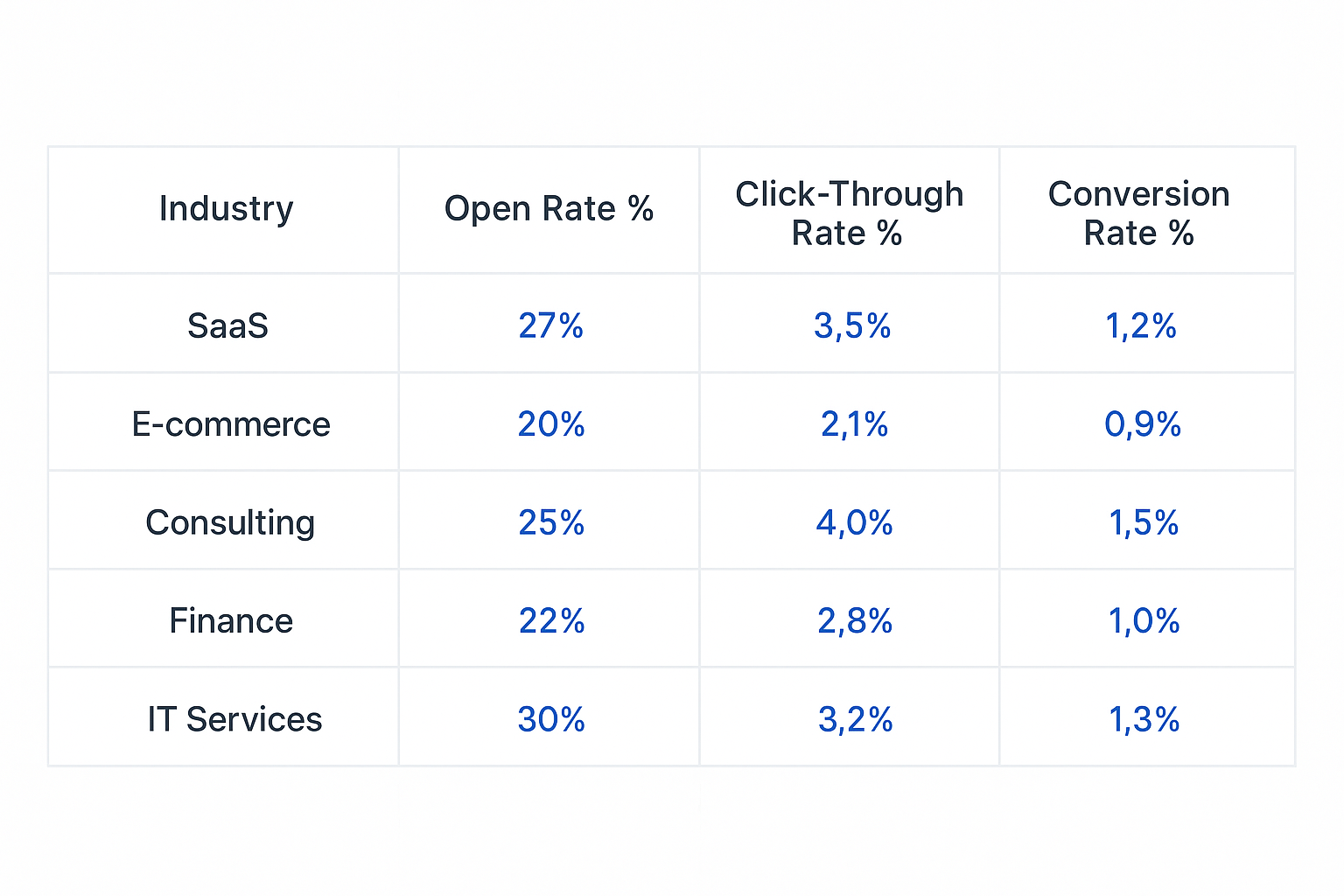
From Small Agency into a Scalable Web Dev Business
Growing from a solo freelancer or a one-person agency into a scalable web development business in 2025 isn’t just about taking on more clients. It requires rethinking how you operate, building repeatable systems, and setting up reliable lead generation that doesn’t depend entirely on your personal time.
Step 1 - Build Processes That Remove You as the Bottleneck
Most new agency owners hit a ceiling because everything lives in their head: how they write proposals, manage projects, or handle client revisions. To scale:
- Document every step of your workflow - from lead qualification and onboarding to coding standards and QA checks.
- Use shared templates for proposals, contracts, and client reports.
- Create SOPs (standard operating procedures) that allow junior developers or VAs to handle recurring tasks without you micromanaging.
This shift is crucial because, at scale, your value is not in writing every line of code but in running a predictable system that delivers quality consistently.
Step 2 - Upgrade Your Tech Stack for Multi-Client Management
Tools that work fine for 1 - 2 projects can break down with 5 - 10 clients in parallel. In 2025, scalable agencies are relying on:
- Project Management: ClickUp, Notion, or Jira with prebuilt web dev pipelines.
- Time Tracking + Billing: Upwork Tracker or Hubstaff to track hours and automate invoicing.
- Communication: Slack + Loom + automated status reports to cut back on endless calls.
- Version Control: GitHub or GitLab with clear branching rules for team collaboration.
Automation is your friend here. The fewer manual handoffs you have, the easier it is to keep quality high across multiple projects.
Step 3 - Make Lead Generation a System, Not a Side Task
Many agencies stall because the founder is doing all the selling manually. In 2025, the competition for web development jobs on platforms like Upwork is intense, and cold outreach has low conversion if done sporadically. To scale:
- Leverage Automation on Upwork: Tools like GigRadar scan jobs 24/7, filter high-value projects, and auto-draft personalized proposals so you’re always first in line.
- Build an Authority Funnel: Publish micro case studies, technical tips on LinkedIn, or developer insights on Medium to attract inbound leads.
- Nurture Referrals: Set up a simple incentive program for past clients and partners who bring you new projects.
- Create a Scalable Offer: Position yourself around outcomes (e.g., "Shopify stores that convert 20% better"), making it easier to sell at higher rates.
Agencies that rely on random bidding or word of mouth plateau fast. Agencies with predictable lead flow grow into teams of 5, 10, or 20 without the founder working 80-hour weeks.
The web dev market on Upwork and beyond is crowded, but opportunities keep growing for agencies that combine speed (automation), specialization (niche offers), and systems (process-driven delivery).
Scaling is less about coding more hours and more about building a machine that wins projects, delivers consistently, and frees you from being the only engine in the business.
Start & Boost Your Agency With Gigradar on Upwork
The web development agency landscape has changed dramatically. Successful agencies no longer wait for clients to find them - they actively pursue opportunities on platforms where businesses are already looking for solutions. Upwork has emerged as the premier platform for serious web development projects, with thousands of businesses posting quality opportunities daily.
However, success on Upwork requires more than just creating a profile and submitting occasional proposals. The agencies achieving consistent results understand that Upwork success depends on consistent activity, strategic proposal writing, and quick response times to new opportunities.
This is where Gigradar transforms agency growth. Instead of manually monitoring Upwork for suitable projects, Gigradar automatically tracks opportunities matching your specific criteria. When relevant projects appear, you receive immediate notifications with all the information needed to submit competitive proposals quickly.
The tool goes beyond simple alerts. Gigradar analyzes project requirements and suggests proposal strategies based on successful patterns. It tracks your proposal performance and provides insights for improving win rates. Most importantly, it saves hours of daily prospecting time that you can reinvest in client work and business development.
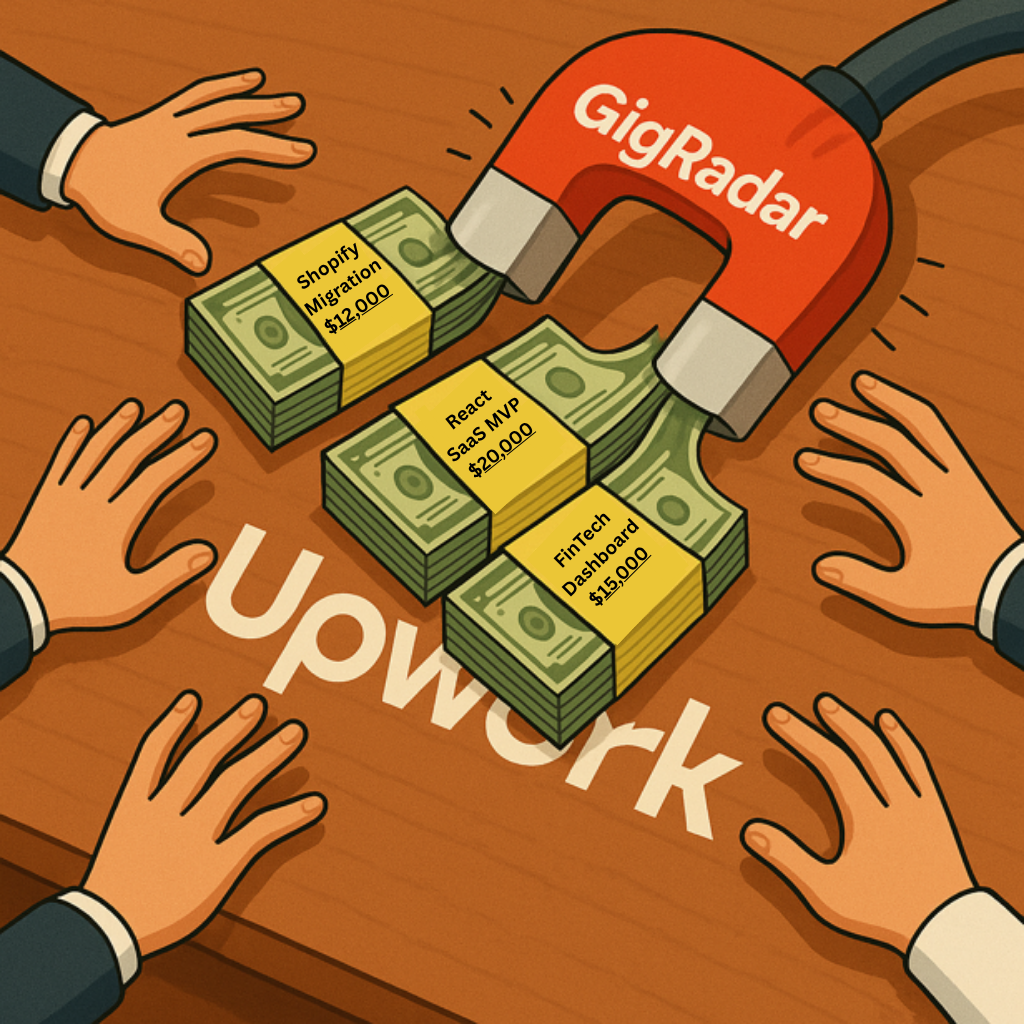
Agencies using Gigradar report significant improvements in their Upwork performance. They apply for more relevant projects, respond faster to new opportunities, and maintain higher proposal quality through automated optimization suggestions. The combination leads to higher win rates and better project matches.
The platform also provides valuable market intelligence. You can track pricing trends, identify emerging project types, and monitor competitor activity. This information helps you position your agency strategically and adjust your services based on market demand. Starting a web development agency in 2025 requires combining traditional business skills with modern lead generation strategies. The agencies that thrive understand that technical excellence alone isn't enough - you need systematic approaches to finding and winning clients. Upwork provides unparalleled access to businesses actively seeking web development services. Combined with tools like Gigradar that automate the time-consuming aspects of opportunity identification and proposal management, new agencies can compete effectively with established competitors. The key is starting with a clear strategy, documenting your processes, and investing in tools that multiply your efforts. Whether you're launching your first agency or scaling an existing business, the combination of Upwork's project volume and Gigradar's automation creates a powerful foundation for sustainable growth.
Success in the web development agency business comes down to consistency and efficiency. Consistent marketing efforts, efficient project delivery, and systematic approaches to client acquisition. Tools that automate repetitive tasks while maintaining quality give you the leverage needed to build a thriving business. The opportunities are there. The tools are available. The only question is whether you'll take action to claim your share of the growing web development market. Start today, and in 12 months, you could be running the successful agency you've always envisioned.





.avif)
.png)
.webp)
